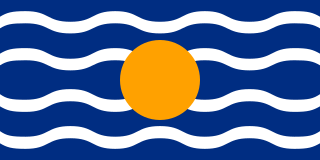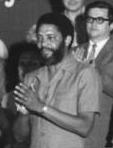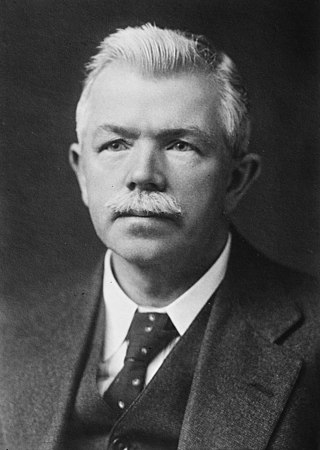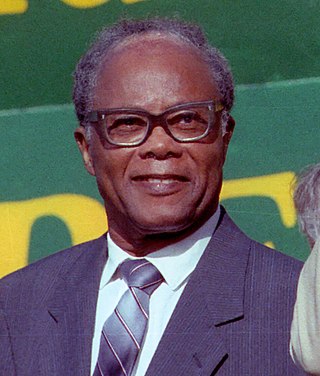Related Research Articles
The history of Grenada in the Caribbean, part of the Lesser Antilles group of islands, covers a period from the earliest human settlements to the establishment of the contemporary nationstate of Grenada. First settled by indigenous peoples, Grenada by the time of European contact was inhabited by the Caribs. French colonists killed most of the Caribs on the island and established plantations on the island, eventually importing African slaves to work on the sugar plantations.
The politics of Grenada takes place in a framework of a parliamentary representative democracy, whereby the prime minister is the head of government. Grenada is an independent Commonwealth realm. It is governed under a multi-party parliamentary system whose political and legal traditions closely follow those of the United Kingdom; it has a prime minister and a cabinet, and a bicameral Parliament with an elected House of Representatives and an appointed Senate. Executive power is exercised by the government. Legislative power is vested in both the government and parliament. Constitutional safeguards include freedom of speech, press, worship, motion, and association. Grenada is a member of the eastern Caribbean court system. The Judiciary is independent of the executive and the legislature. Jurisprudence is based on English common law.

The West Indies Federation, also known as the West Indies, the Federation of the West Indies or the West Indian Federation, was a short-lived political union that existed from 3 January 1958 to 31 May 1962. Various islands in the Caribbean that were part of the British Empire, including Trinidad and Tobago, Barbados, Jamaica, and those on the Leeward and Windward Islands, came together to form the Federation, with its capital in Port of Spain, Trinidad and Tobago. The expressed intention of the Federation was to create a political unit that would become independent from Britain as a single state — possibly similar to Canada, the Federation of Australia, or the Federation of Rhodesia and Nyasaland. Before that could happen, the Federation collapsed due to internal political conflicts over how it would be governed or function viably. The formation of a West Indian Federation was encouraged by the United Kingdom, but also requested by West Indian nationalists.

Keith Claudius Mitchell is a Grenadian politician who served as Prime Minister of Grenada from 1995 to 2008 and from 2013 to 2022. He is the longest-serving Prime Minister in Grenadian history, holding the office for more than 22 years. He is currently leader of the New National Party (NNP) and has been the Leader of the Opposition in the House of Representatives of Grenada from 2008 to 2013, and again since 2022.

The New National Party (NNP), also known as NNP Grenada, Carriacou and Petite Martinique, is a conservative political party in Grenada. It is led by former Prime Minister, Keith Mitchell.

Sir Eric Matthew Gairy PC was the first Prime Minister of Grenada, serving from his country's independence in 1974 until his overthrow in a coup by Maurice Bishop in 1979. Gairy also served as head of government in pre-independence Grenada as Chief Minister from 1961 to 1962, and as Premier from 1967 to 1974.

Maurice Rupert Bishop was a Grenadian revolutionary and the leader of New Jewel Movement – a Marxist–Leninist party that sought to prioritise socio-economic development, education, and black liberation – that came to power during the 13 March 1979 revolution that removed Eric Gairy from office. Bishop headed the People's Revolutionary Government of Grenada from 1979 to 1983, when he was dismissed from his post and executed during the coup by Bernard Coard, leading to upheaval.

The Governor-General of Grenada is the representative of the Grenadian monarch, currently King Charles III, in Grenada. The Governor-General is appointed by the monarch on the recommendation of the Prime Minister of Grenada. The functions of the Governor-General include appointing ministers, judges, and ambassadors; giving Royal Assent to legislation passed by the Grenadian Parliament; and issuing writs for election.

John Robert Clynes was a British trade unionist and Labour Party politician. He was a Member of Parliament (MP) for 35 years, and as Leader of the Labour Party (1921–1922), led the party in its breakthrough at the 1922 general election.

The New Joint Endeavor for Welfare, Education, and Liberation, or New JEWEL Movement (NJM), was a Marxist–Leninist vanguard party in the Caribbean island nation of Grenada that was led by Maurice Bishop.

Herbert Augustus Blaize PC was a Grenadian politician and leader of the Grenada National Party. When Grenada was still a British Crown Colony he served as the first Chief Minister from 1960 to 1961, and again from 1962 to 1967. He became the first Premier of the autonomous Associated State of Grenada briefly in 1967. In the first elections following the 1983 coups and the American-led invasion of Grenada, he served as Prime Minister from 1984 until his death in 1989.
David Thomas Pitt, Baron Pitt of Hampstead was a British Labour Party politician, general practitioner and political activist. Born in Grenada, in the Caribbean, he was the second peer of African descent to sit in the House of Lords, being granted a life peerage in 1975, and was the longest serving Black Parliamentarian.

The People's Revolutionary Government (PRG) was proclaimed on 13 March 1979 after the Marxist–Leninist New Jewel Movement overthrew the government of Grenada in a revolution, making Grenada the only socialist state within the Commonwealth. In Grenada, the revolution is referred to as the March 13th Revolution of 1979 or simply as “The Revolution”. The government suspended the constitution and ruled by decree until a factional conflict broke out, culminating in an invasion by the United States on 25 October 1983.

General elections were held in Grenada on 8 July 2008. Out of a total of fifteen seats, the opposition National Democratic Congress (NDC) won eleven seats and the governing New National Party (NNP) won four, bringing the NDC to power for the first time since 1995. The NNP was looking for a fourth consecutive term in power, which would have been a first in Grenadian history.

George Ignatius Brizan, CMG, CBE was a Grenadian politician who served as Prime Minister of Grenada for four months in 1995. He moved to the top post in February, upon the resignation of Nicholas Brathwaite, and remained in office until Keith Mitchell was inaugurated on 22 June.

Grenada is an island country of the West Indies in the eastern Caribbean Sea. The southernmost of the Windward Islands, Grenada is directly south of Saint Vincent and the Grenadines and about 100 miles (160 km) north of Trinidad and the South American mainland.

Tillman Joseph Thomas, CBE is a Grenadian politician who served as Prime Minister of Grenada from 2008 to 2013. He was the leader of the National Democratic Congress (NDC) from 2000 to 2014.

General elections were held in Grenada on 27 March 1961. Eric Gairy's Grenada United Labour Party won eight of the ten seats, his wife Cynthia Gairy becoming the first woman to be elected to the legislature. George E.D. Clyne of GULP became Chief Minister and served from March to August 1961 when, following the direct intervention of the British government, Gairy's political ban was lifted early, and Clyne resigned allowing Gairy to return in a by-election and become Chief Minister. Voter turnout was 55.5%.
Sir John Augustus Fitzroy Watts KCMG CBE was a Grenadian dentist, politician and co-founder of the Grenada National Party.

Snap general elections were held in Grenada on 23 June 2022. The incumbent Prime Minister Keith Mitchell sought a sixth term. National Democratic Congress (NDC) made a return to parliament after nine years of absence, defeating the ruling party New National Party (NNP), which led to Dickon Mitchell becoming the new prime minister of Grenada. This is also the first election since 2008 where the NDC gained seats.
References
- ↑ "Political Leaders: Grenada".
- ↑ "Caribbean Elections - Independence in Grenada". Archived from the original on 2015-10-26. Retrieved 2016-12-18.
- ↑ Steel, Beverley A. (2003) Grenada: A History of Its People. Macmillan Caribbean. p. 361.
- ↑ "The Parliamentarian: Journal of the Parliaments of the Commonwealth". 1968.
- ↑ "The Parliamentarian". 1973.
- ↑ "Keesing's Contemporary Archives". Keesing's Limited. 1985.